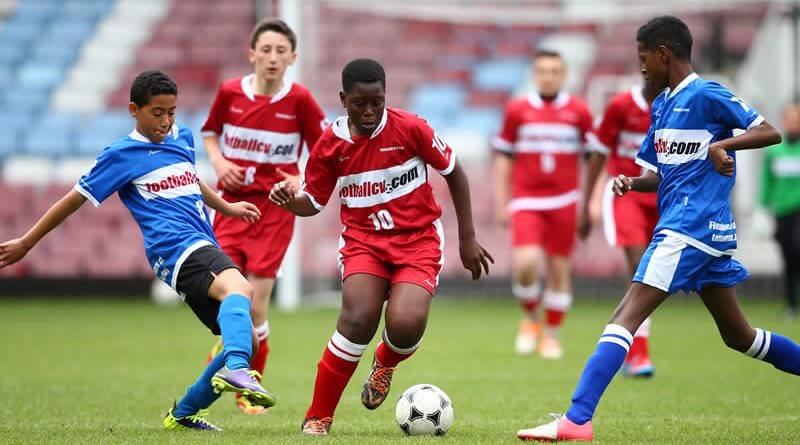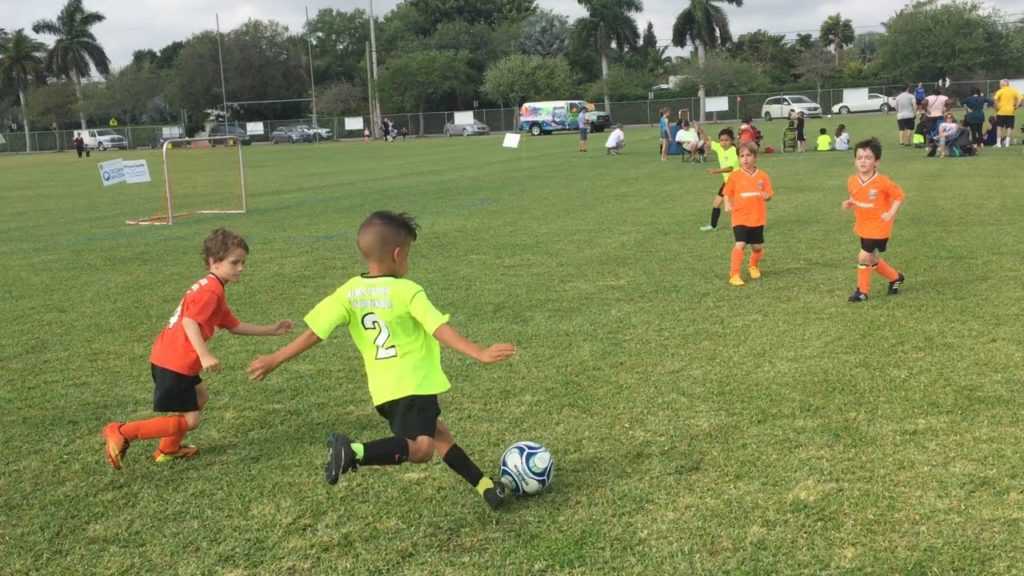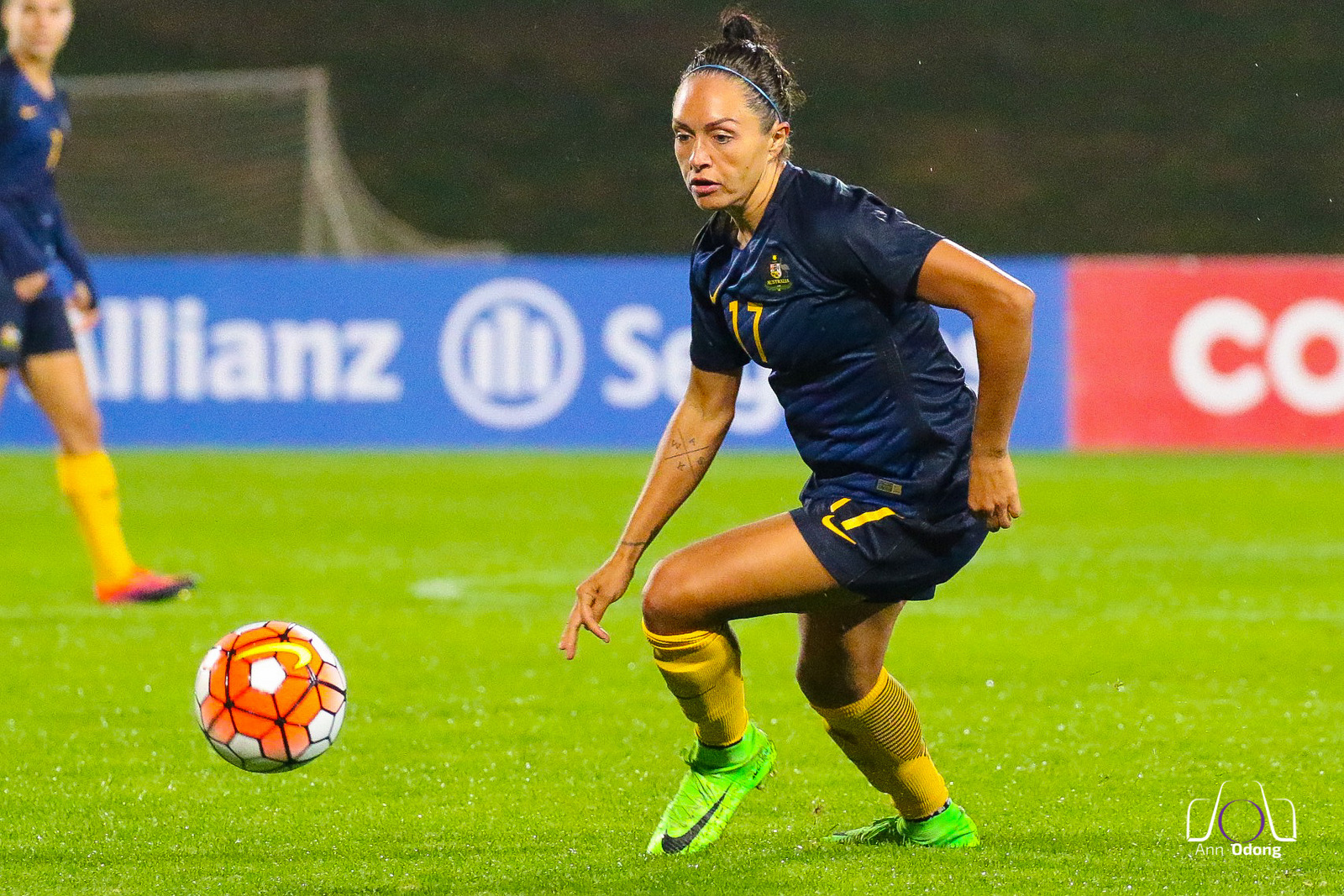
When you see that one of your children is emerging in a sport such as football/soccer, it is very possible that you are wondering how to help him become a professional soccer player or at least encourage him to try and get his full potential, not only football but also its more motivational side. In many of these cases, parents feel a lot of pressure to have to boost their skills, because they do not know how to do it correctly.
The fears of parents are common. Some parents do not know anything about the process a child goes through when becoming a professional soccer player, others fear that if their child is too focused on their professional football career, they will forget the importance of their education.
In this article, we will analyze the whole process to help your child become a professional player and we will also discover the best option for children to continue their studies while training at the level of elite football.
How to help your child become a professional soccer player

You will find the basic steps to help your child become a professional soccer player below. Continue reading for more information and tips on each step to help your child become a professional soccer player.
- Plan and visualize the way to become a professional soccer player.
- Send your child to summer camps in their country of origin and abroad (from 5 to 12 years old).
- As adolescence approaches, do not sacrifice your education for soccer training.
- Rate sending your child to a high-performance academy in the United States or Europe.
- Decide between the United States or Europe.
Plan and visualize the path to turn your son into a professional soccer player
There are many ways to become a professional soccer player and it depends on where you live there are some means or others. There is a big difference in the path a professional soccer player should follow in Europe and the United States, for example.
By informing you about how European and American footballers have managed to become professionals, it is how you really get a better idea of the types of elite training in which your child should participate. Therefore, learning about the process is the first step.
Below we will see a comparison of the paths that must be followed to become a professional soccer player in the United States and Europe:
The way to play professionally in the United States
 From 5 to 9 years old: have your son join the local teams that travel with good coaches and have good connections.
From 5 to 9 years old: have your son join the local teams that travel with good coaches and have good connections.
From 9 to 12 years old: have him join his first USSDA team and work hard to become one of the best in his region. Try to attend soccer camps abroad to expand your knowledge of the game.
From 12 to 17 years old: Join the High-Performance Soccer Academy of FC Barcelona in Arizona, USA. UU., From 1 to 4 years.
From 15 to 18 years old: try to connect with university coaches and do the tests and trials of the university to get recognition. Consider the possibility of training at a High-Performance Football Academy in Europe from 1 to 4 years to expand your knowledge of the game.
From 18 to 21 years old: playing in a Division I college with coaches who know how to enter the MLS and who have a track record of training professional players. Be prepared to be invited to the MLS Combine (make connections with college coaches and MLS coaches). Or be prepared to be signed by “Generation Adidas”, play professionally at the beginning and then be able to attend SuperDraft MLS.
From 21 to 22 years old (maybe before): go to MLS SuperDraft and try to be selected to play professionally.
The way to play professionally in Europe
 Ages 5 – 9: Your child must play on local teams or play on local official youth teams of professional football clubs. Attend summer soccer camps affiliated with large club teams to improve their skills.
Ages 5 – 9: Your child must play on local teams or play on local official youth teams of professional football clubs. Attend summer soccer camps affiliated with large club teams to improve their skills.
From 10 to 15 years old: from 10 to 15 years old, players can continue to play in smaller local youth teams without residences, or they can join larger youth teams in more successful football clubs with residency options.
From 13 to 18 years old: young elite soccer players have the opportunity to join high-performance football academies. Although they are more expensive, high-performance academies are the safest option for students who have the potential to become professional soccer players.
* Consider joining a high-performance academy in the United States to get soccer scholarships, study and compete in a US university.
From 16 to 21 years old: at the age of 16, players are already susceptible to signing professional contracts. Soccer clubs sign professional contracts with players in their youth teams, since they believe they can play in the club’s first team or because they can sell or sell these players to other clubs for a considerable benefit.
Send your child to summer camps to foster their passion and define their talent
 Youth elite soccer players between 5 and 12 years old should be exposed to as many football players and coaches as possible. This exhibition makes them more complete and versatile players.
Youth elite soccer players between 5 and 12 years old should be exposed to as many football players and coaches as possible. This exhibition makes them more complete and versatile players.
It is especially important that your child is exposed to different coaches. It is likely that each trainer has a slightly different perspective (sometimes a drastically different perspective) about your child’s natural strengths and weaknesses. As a result, each coach can see him stand out in different positions in the field.
By allowing many coaches to train your child at an early age, your child is more likely to try new positions and playing styles. They will learn to adapt to the styles of play their coaches demand as they grow and join more serious teams.
In addition, by being exposed to different positions in the field, your child will become a complete player with extensive knowledge of all positions.
To ensure that your child is exposed to many different coaches and playing styles at an early age, it will always be a good idea to send him to summer soccer camps where they will meet different coaches, players, play styles, training styles, etc…
Find the balance between studies and training to become a professional soccer player
When your child reaches adolescence (around age 13), his football training becomes more intense. At the same time, their studies are also complicated.
It is very important not to downplay the education of your child. We know that becoming a professional soccer player would be a dream come true for these children, but only a small part of the most talented players have the possibility of becoming professional soccer players.
Of course, it is important to help your child reach his full potential on the football field and, hopefully, help him become a professional soccer player. But it is even more important to ensure that they also receive a top-notch education in case their plans are not met.
High-performance football academies: achieving the balance between education and elite football training

The high-performance academies seek to provide balance to young footballers who have the potential to become professional players.
They are essentially interned for high school students. Except that, unlike normal boarding schools, these schools are designed to turn talented young footballers into professional footballers.
At the same time, they place great emphasis on education and on the development of the young person’s character, not only as a footballer but also as a person. Therefore, even if your child is away from home in a high-performance academy, he still receives sufficient guidance from teachers, coaches and academy staff to ensure that they become responsible and respectful young people.
Send your child to a high-performance academy in the United States
Whether in Europe or the United States, sending your child to a high-performance academy in the United States could be the best option to help you become a professional soccer player.
The education system of the United States does a great job of incorporating sports to ensure that athletes participate in sports training as a complement to their education. However, whether or not your child has the opportunity to earn a college scholarship and/or become a professional has a lot to do with how good the teams in your area are.
If the local teams in your area are not famous for being strong and winning competitions, it is likely that your child is not exposed to many scouts and, therefore, will not offer scholarships or other opportunities that may be crucial.
Get him to compete at an advanced level, get the attention of the scouts and get a university scholarship
High-performance academies offer the perfect solution to the problem. They only accept elite athletes and only compete with the best teams in the country. Therefore, it is guaranteed that the competition will be fierce and the children in these academies are constantly receiving visits and attention from the scouts.
In the same way, since these academies are like internships, they can accommodate students and accept students from all over the world. This means that talented soccer players who attend high schools and do not receive attention from college coaches can join these academies to get the elite training, stiff competition and the attention of the scouts they need to Become professional soccer players.
Send your child to a high-performance academy in Europe
 You can also help your child become a professional player by sending him to a high-performance football academy in Europe.
You can also help your child become a professional player by sending him to a high-performance football academy in Europe.
Spain is the BEST option to choose a high-performance academy in Europe and has a very high success rate in terms of production of professional soccer players.
Renowned stars like goalkeeper Keylor Navas of Real Madrid, Oliver Torres of FC Porto and player Berta Pujadas of Real Club Deportivo Español, along with a long list of successful professional and semi-professional players have passed through this academy.
There is also a great high-performance academy in the United Kingdom that has educated and trained players like Calum Jahraldo-Martin, who plays in the second division of the English league, or Emmanuel Oyeleke, who currently plays for Aldershot Town in the National League.
Train in an academy that values education and offers personalized advice
The high-performance academies offer the perfect solution to the problem of the European youth system. Therefore, they could be the best option to help your child become a professional soccer player in Europe.
High-performance academies place great emphasis on the education and development of the child’s character and personality. In addition, since they are generally not affiliated with any specific club, they always work in the best interest of their students and offer them their best opportunities as professional or semi-professional soccer players according to their style and level of play.
In case you send them to an academy in the United States or Europe – Exploring the results
Europeans can join high-performance academies in the United States and equally, Americans can join high-performance academies in Europe.
The high-performance academies in Europe have more connections with European football leagues. For example, the high-performance academy in Barcelona has more connections and produced many players for the Spanish football league. The high-performance academy in the United Kingdom, on the other hand, has more connections and produces more players to compete in the English Premier League.
High-performance academies in the United States have more connections to American universities, where players can win scholarships and compete with American universities before entering MLS (Major League Soccer).
You must decide which academy you want to send to your child depending on the result you want to achieve.
